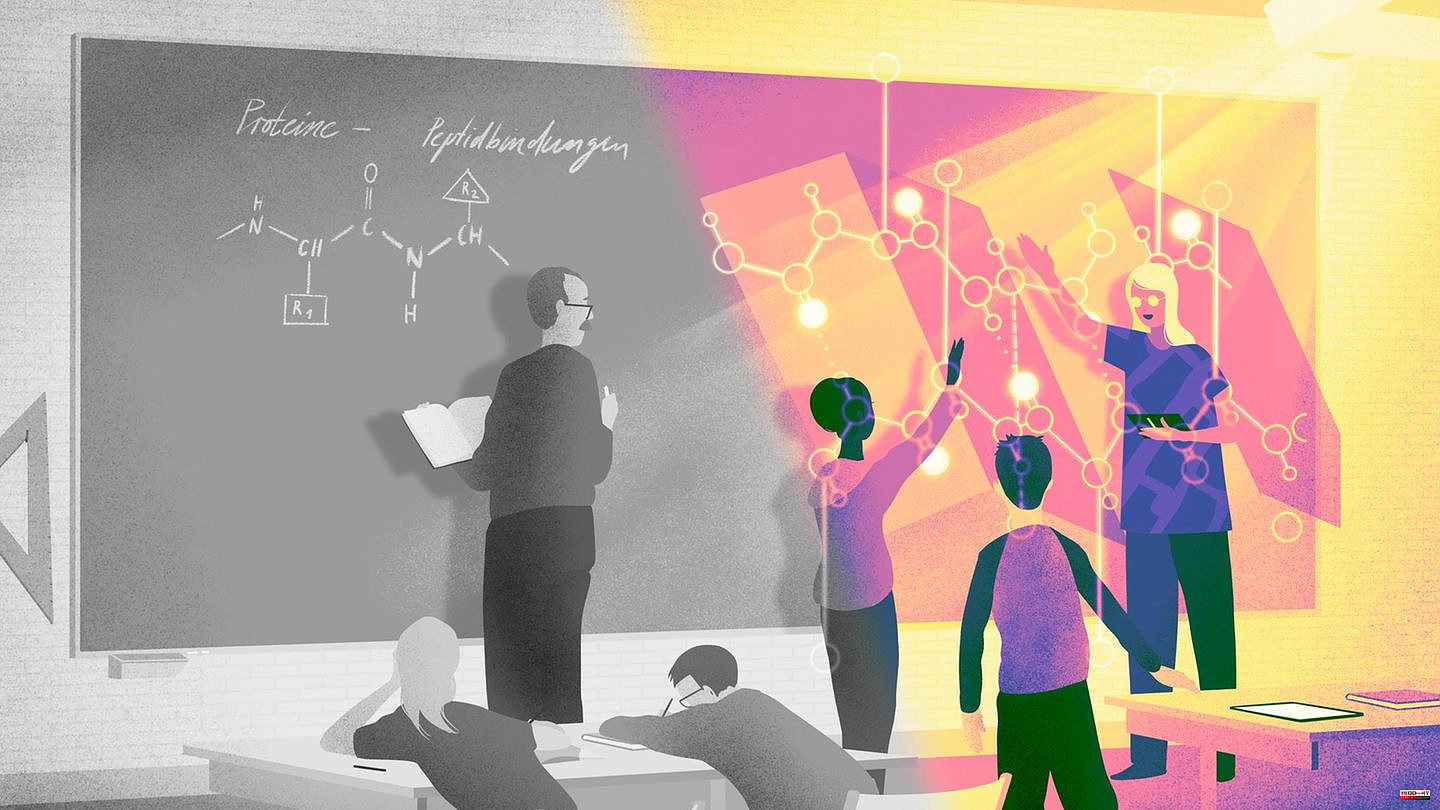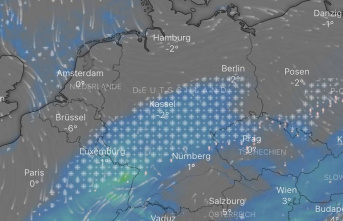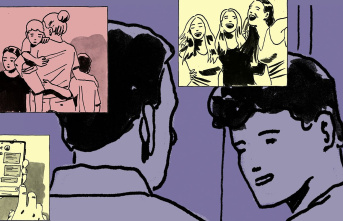Ms. Scheiter, young people and adults alike spend many hours every day on their smartphones and computers. Is it worth striving to digitize learning as much as possible? The question is how to do it. At school, we want to prepare children and young people to deal with digital media in a critical and reflective manner. This includes thinking about: How much do I use media, for which tasks do I use them, where am I perhaps revealing too much about myself? First of all, we have to prepare children for this. The second step is then to check: Do you also have to use digital media for learning yourself?
And the answer? Yes, there is great potential if digital media is used correctly. For example, when the computer gives students tips on what they have not yet understood well and what they should take a closer look at.
But a task sheet on the screen is no improvement over printing it out on paper. It doesn't necessarily have to look fancy, but it should offer more than a sheet of paper. In fact, we observe that much is still a digital copy of what was previously done analogously. However, the computer should tell me if my answer is wrong and give hints for the right solution - but adapted to the individual learning level. Then I don't have to wait until the teacher has time to correct my note.
That almost sounds like artificial intelligence... A lot of research is being done on artificial intelligence in education. But there are also areas where it is not needed at all. If the correct number is not entered as the solution to a math problem, then it is simply wrong. Computer programs can detect this very easily. It gets more interesting with systems that can process human speech. You would have to recognize whether the learners made all the essential points in an answer text. There is still a lot of development work to be done.
What exactly are the strengths of learning on iPad and Co.? An example: In history lessons, places can be visited that no longer exist, such as the lost Troy. It is also possible to make the invisible tangible or observable, such as chemical processes. How particles behave as the temperature increases is easier to understand in an interactive animation than in a static drawing. Pupils can digitally carry out more and also different experiments than in the classroom. I'm not allowed to use dangerous materials there.
It sounds as if scientific subjects are particularly suitable for digital learning. No, that's not generally true. Physics, chemistry and mathematics were the pioneers, also in research on digital learning. But in art or music there are also many possibilities, for example to compose digitally or to illustrate a harmony visually. Those are great ideas.
But what is more impressive than a real oxyhydrogen experiment? One should not replace the other. We have studied this scientifically. It is best to combine both worlds, the real experiment and the digital representation. Then I have the real observation and work with the Bunsen burner myself, but I can also see in the virtual experiment which chemical reaction is behind the bang. This is how you achieve the greatest learning success.
What possibilities does digitization offer in classes that have very different levels and do not learn at the same pace? That is one of the main advantages. First of all, a diagnosis is possible. At what level is the individual learner in the class? It is not so easy for a teacher to get and keep track of 30 students. The first step would be to use digital media to quickly determine the level of knowledge and report back to the teacher. The second step is then to present different learning opportunities. The teacher can do this or a computer-based system.
That sounds complicated. The challenge is to integrate the whole thing into the lesson. Everyone gets individual offers and progresses at their personal pace. But then it can happen that the level develops even further apart. The teachers must ensure that it remains one class and does not break up into a collection of individual learners.
Has it also been researched when it is harder to learn digitally? That cannot be answered in general. In some cases, however, the use of media has been simply naïve, for example when it comes to reading. Research clearly shows that reading on an analog medium is better at supporting comprehension.
If I read a text on paper instead of on the screen, do I understand the content better? Simply reading it on the screen is more of a hindrance to learning success. Replacing a textbook with a PDF document is pointless. However, the assessment changes if the potential of the digital is used correctly. The teacher can have questions pop up in a text or add links, for example to the Wikipedia entries of the people in a historical novel. But care is needed here. There is also a lot of nonsense on the internet.
One of the results of your research is: We learn particularly well by drawing. Why? When we draw, we create something ourselves. Ideally, I need to reflect on what I've understood. With every line I have to think about where it leads. I deal more intensively with the content.
Can learning through drawing be combined with digital media? There are initial approaches, such as drawing on a tablet. According to the current status, the effect is smaller than when drawing on paper. This can be related to the fact that you quickly draw something on the screen because you can quickly erase it again. I'll have to think about it better on paper. So I'm being slowed down, so to speak, which forces me to think.
So it would be ideal if the computer gave me a task that I could solve by hand on paper. There are precisely such concepts: working out the statically most important state on paper from a dynamic screen animation.
I always learned particularly well at school and university by writing summaries by hand. How is that to be explained? Well, I have to correct you there. Writing summaries is not a particularly successful learning strategy. Although it is still taught even in school. It is much more effective to test yourself, to ask questions if you got it right.
You're shattering the beliefs of millions of students here. I know. Some still take down entire lectures and copy whole blackboards. It is much better to penetrate the content. It doesn't matter that much whether I read, write or draw. What is important is active employment, which I put into it.
Many can talk better than write or draw. So you could tell your fellow learners, parents or partners what you have learned. That is also a big topic in research: learning by explaining. Just knowing I have to explain it to someone makes me try harder to understand and make others understand.
But success is more difficult for teachers to control. Not necessarily. It can also be the task of producing short explainer videos.
The learning motto would then be: Do it like the Youtuber Rezo! Exactly. For the Tiktok generation, a video is a tool like scissors or a pen and a piece of paper. This is a skill that is useful in many areas. Teachers can also make explainer videos. During the Corona school closures, we noticed that it was very well received when teachers made videos for their students. It is also an expression of recognition or appreciation when I see that my teacher has made an effort. This has a very motivating effect on the students.
Because they know it takes work to make a good video? That could be one explanation. In any case, when my teacher produces something for my class, it creates a greater sense of togetherness and connection than when a YouTube star explains something.
Where am I really learning? Is a course worth the money? How satisfied are the graduates? The star asked those who had experience with distance learning, learning apps or language courses: the participants.
The Study
The partner in the study is the renowned market research institute Globis, which researches and advises on topics relating to customer satisfaction. Between April 8th and June 8th, more than 4500 adults were asked about the use of further education offers via two professional online panels. The participants could choose which areas they are familiar with. There, the providers known to them were to be evaluated according to seven criteria.
It was about the following dimensions:
Learning quality (up-to-dateness of the learning content, preparation and presentation of the learning content, learning effect), e-learning offer, service and support, value for money as well as overall satisfaction and willingness to recommend. The criterion "up-to-dateness of the learning content" was only collected in those areas in which this makes sense (ie not in further education courses on languages). Likewise, the e-learning offer could only be graded separately where this technology is actually used.
The review
All the dimensions collected were included in equal parts in the result per provider. The ratings were given on a scale from one to ten. Since respondents tend to rate providers at the top end of the scale, the results were transformed to a scale of five to slightly above the maximum and converted into points (minimum 0, maximum 100). The determined total value is converted into a star scale. Results from 60 points are published:
60-69.9 points: three stars 70-79.9 points: four stars 80 points and more: five stars
For each category, the providers rated best according to the three evaluation dimensions are also marked in orange.
transparency
The stern editorial team only works with test partners with a high level of expertise. Bring Globis with you. The independent market research institute works for a large number of clients. However, the neutrality of data collection and analysis is always guaranteed. The stern editorial team decided on the questionnaire and the evaluation scheme. No company was able to nominate its participants for the survey. The award-winning providers have the opportunity to acquire a star seal for their external image. More detailed information on the conditions of these seals can be found here.












